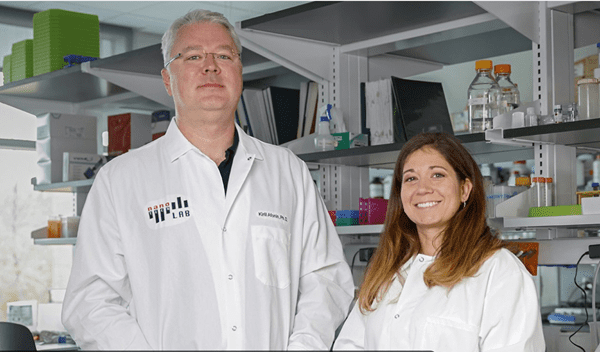AI Meets Immunology: Reimagining Personalized Medicine

By Anna Holt
Photography by Kat Lawrence
Imagine that healthcare professionals could predict how a patient’s immune system would respond to a treatment before the medicine ever reached the clinic. Envision vaccines with fewer side effects or cancer therapies precisely tailored to each patient’s unique biology.
A collaboration between UNC Charlotte professor of chemistry Kirill Afonin and researchers from the National Cancer Institute and National Center for Advancing Translational Sciences, Marina Dobrovolskaia and Alexey Zakharov, respectively, is bringing this reality closer than ever. Together, they have developed AI-Cell (Artificial Intelligence-Cell) — a first-of-its-kind tool that mimics how human immune cells respond to RNA- and DNA-based nanomedicines. Their innovation has the potential to revolutionize gene therapy, making it safer and more personalized.
Read more from Inside UNC Charlotte.